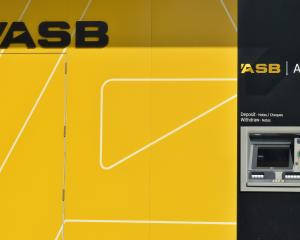Environmentalists have slated the Government for considering allowing deepwater oil and gas exploration drilling in New Zealand's Exclusive Economic Zone (EEZ) without the need for consents.
As the Government recently estimated almost 30 exploration wells might be drilled around the coast during the next five years, the proposed deepwater exploration in the Great South Basin and Canterbury Basin next year could become the rallying point of environmental concern.
The Green Party is calling for the prohibition of deepwater drilling in New Zealand, saying the environmental risks are too high. Forest and Bird said the new Exclusive Economic Zone and Continental Shelf (Environmental Effects) Act was supposed to be about regulating deepwater activity.
Green Party MP Gareth Hughes said in order to protect the environment the Government should make deep-sea drilling a prohibited activity, not a permitted activity.
"It is outrageous that the Government is even entertaining the idea of allowing dangerous deep-sea oil drilling in New Zealand waters without requiring a resource consent." Mr Hughes said.
Public opinion worldwide was polarised in April 2010 by the Deepwater Horizon rig disaster in 1500m of water in the Gulf of Mexico, which killed 11 oil men and spewed almost 5 million barrels of oil into the ocean. It became the United States' worst environmental disaster, with total clean-up and compensation costs estimated at $US38 billion ($NZ46.3 billion).
The Great South and Canterbury Basins are deepwater targets of oil companies. The first most likely holes will be at prospects off Oamaru, in about 1000m of water, in a year's time, by Houston-based Anadarko, potentially costing up to $200 million.
Shell, which has spent about $50 million in shipborne seismic surveys around the Great South Basin during five years, will make a drilling decision within two years.
Further Southern oil and gas exploration plans may be revealed in mid-December, when the Ministry of Economic Development announces who were the successful tenders for exploration of 23 onshore and offshore blocks around the country.
The Government is at present developing regulations under the new EEZ legislation, to decide which offshore activities should be prohibited, discretionary (requiring consent) or permitted within stated rules.
Mr Hughes and Forest and Bird were responding to reports Environment Minister Amy Adams would not rule out allowing deep-sea drilling as a permitted activity under regulations for the Exclusive Economic Zone and Continental Shelf (Environmental Effects) Act.
"It would be absurd to allow oil companies to conduct risky deepwater drilling without a resource consent while New Zealanders are required get a resource consent to build a tall fence in their back yard," Mr Hughes said.
He said of 11,834 public submissions the Government received on the EEZ regulations, 98.5% called on it to make deepwater drilling a prohibited activity.
"What's the point of having an environmental legislative regime for our EEZ if the Government is going to allow companies to conduct risky activities there without the scrutiny of the resource consent process," Mr Hughes said.
Forest and Bird conservation advocate Claire Browning said the EEZ legislation was supposed to be about regulating deepwater activity, and taking a cautious approach.
" It would be incautious, and downright dangerous, if the Government were now simply to permit it," she said.
She said Forest and Bird's earlier submission on the draft regulations was part of the majority of the 11,834 submissions which called for deepwater drilling beyond 500m to be prohibited for the time being. The remaining submissions said the activities should be discretionary, requiring consent.











